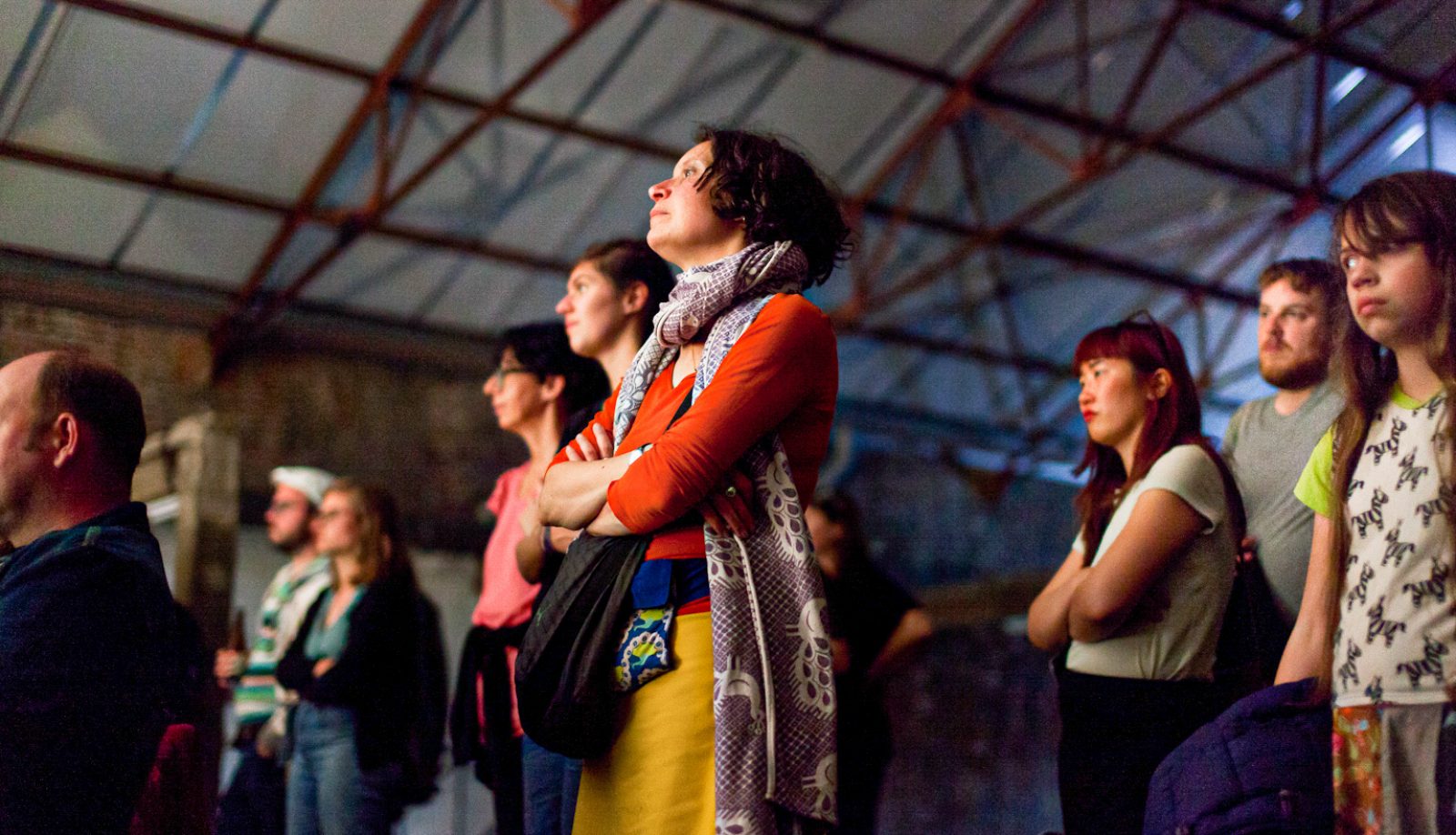Oxfam x argos: Courageous Conversation on ecofeminism and nature

An evening of art and ecofeminism
On June 13, Oxfam and argos invite you to Courageous Conversation, an evening of performances, film and workshops, where art encourages conversations about nature and ecofeminism.
What does it mean to have a courageous conversation about the climate?
As we are constantly told, the climate crisis means that we must create new visions, break new ground. But before we can make changes, we must be aware of our environment and others. We must be open to change, listening and talking. Suspending our own beliefs to make room for what can happen between ourselves and others is the beginning of a conversation.
Courageous Conversations gives a stage to artists working on the climate crisis from a transdisciplinary and ecofeminist perspective. Together with the audience, they reflect on how we can collectively build cultural and ecological change.
After successful editions in Barcelona and Amsterdam, Courageous Conversation comes to Brussels
After successful editions in Barcelona and Amsterdam, the event is landing in Belgium for the first time. Through performances, short films and artworks, you will be introduced to reflections around ecofeminism and climate change. Then the group will split up to exchange experiences and insights in circle discussions, guided by the artists and Oxfam staff. By asking questions and engaging in dialogue with people from different backgrounds, from art, science and humanities, we open up horizons of thought and engage in courageous conversations.
Schedule
18:30 doors open
18:45 performance by Erien Withouck
19:40 screening
20:15 discussion
21:00 closing/drinks
Oxfam Belgium in collaboration with argos, creates new terms for the climate debate, by taking you to a safe space of ecofeminism, nature and art.
About the artists:
Elise Guillaume
Elise Guillaume (1996) is a Belgian artist whose work explores our complex relationship with nature. Her work is situated at the intersection of psychology, ecology, and concepts of care. Through audiovisual, photographic, and sonic mediums, sometimes manifested as immersive installations, Elise Guillaume is interested in the relationships between psychological health and environmental change. The body is a key element in her work: it becomes a vessel for interpreting the interconnections between the beings that form our world, aiming to transcend the barriers that separate us. In her often intimate works, Elise Guillaume explores the possibilities for a renewed relationship with the earth. More information
Milena Vergara Santiago
Milena Vergara Santiago (1993) is a visual artist born and based in Brussels. Having studied visual design, art, and photography at LUCA School of Arts Ghent and currently exploring printing techniques at the Art Academy of Anderlecht, she mixes these different influences in her creations. By grounding her work in natural landscapes, the artist draws inspiration from the raw beauty and intricate patterns found in nature. This connection allows her to infuse her pieces with a sense of organic vitality and a deep appreciation for the environment. Additionally, she explores the deformation and poetic vein of urban landscapes, capturing the essence of urban life through distorted perspectives. By approaching the concept of landscape with a nostalgic touch and exploring the dialogue between form and content, the artist seeks to develop proposals primarily rooted in subjective associations. She thus explores the ambiguity and dynamics of images and their supports through repetitions and variations. More information
Erien Withouck
Through archive and field research, Erien Withouck explores ancient stories, names and rituals surrounding native plants in the Low Countries as methods of resistance to our contemporary capitalist society. Spread over three years, Withouck's research brings together different customs, social encounters and walks in artistic installations. Last year, Withouck focused on plants you can play with: playgardens. This work had its ground in a community garden in Brussels that she maintains with neighborhood children. This year she is exploring plants used in past practices of love and care: lovegarden. Next year she will focus on the theme of time: timegarden.

